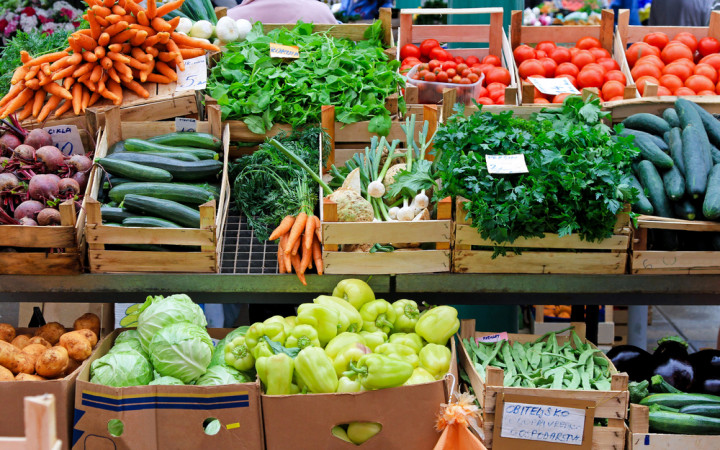Today’s Wonder of the Day was inspired by Nneka. Nneka Wonders, “What makes food organic” Thanks for WONDERing with us, Nneka!
Do you ever help your family shop for groceries? It can be a fun way to spend time together. It’s also a great way to learn new things. You can practice math and finance skills. You can also help make good health and nutrition choices. Yes, a trip to the grocery store can help you gain a lot of new knowledge and skills!
Think back to the last time you shopped for fruits and vegetables. You may have noticed some items labeled with the word “organic.” Have you ever WONDERed what that means?
Organic refers to the way food is grown. To be labeled as organic, food production must meet strict guidelines. These can be different depending on where you live. In the United States, organic foods are certified by the U.S. Department of Agriculture (USDA).
In the U.S., organic foods must be grown or raised without synthetic pesticides and fertilizers. Neither genetic modification nor irradiation can be part of the process. Organic food also can’t have any chemical additives.
For most of history, almost all food was organic. That changed after the Industrial Revolution. During the 20th century, many ideas that were used by factories and big business were put into action on farms. This helped some farms grow larger and yield more produce.
The organic movement was started to get back to the old, traditional ways of farming. Why? Many people believe the chemicals and pesticides used in modern farming can be harmful to your health. Some also think organic foods are naturally more nutritious. Those who support the organic movement also point to its benefits for the environment. Many practices in organic farming are meant to support biodiversity.
Have you ever compared organic and non-organic foods at the grocery store? If so, you know that organic foods tend to cost more. This happens for many reasons. Organic farming produces fewer crops. The cost of production is also usually higher. Additionally, organic farms spend more money taking care of the animals they raise. These and other factors drive the cost of organic food up.
Is organic food worth the extra cost? Some people believe it is. They may think it tastes better or just prefer to eat food that has not been grown using chemicals. Scientists have studied organic and non-organic foods for many years now. They have yet to find a major difference between organic and non-organic food in terms of safety, nutrition, or taste.
Still, others argue that the environmental benefits of organic food make it worth the price. Are you WONDERing whether organic or non-organic is right for you? The best thing you can do is try both for yourself and see which you like best.
Standards: CCRA.L.3, CCRA.L.6, CCRA.R.1, CCRA.R.2, CCRA.R.4, CCRA.R.10, CCRA.SL.1




